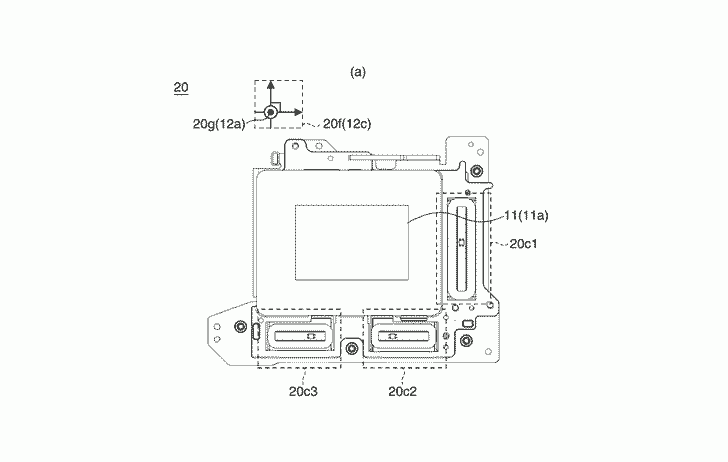It's no surprise anymore that IBIS is coming to future EOS R cameras, and possibly a Canon DSLR. This patent is an extremely detailed view of Canon's IBIS unit. It looks like the technology is ready to go.
Canon News breaks down this particular patent:
They are looking to create high efficiency in the movement force, and to improve the linearity of the magnetic circuit for position detection. Both of which are important to moving a large full-frame sensor quickly and with a high degree of accuracy.
Below is an exploded view of the IBIS unit found in Japan Patent Application 2019-152785.
Some of our articles may include affiliate links. If you purchase through these links, we may earn an affiliate commission at no extra cost to you.



but night, city,and expensive camera equates to bang on the head to me!!
I like IBIS and wish Canon had it. To have IBIS with a 1.2 or 1.4 lens is fun. However I wouldn't be shocked if it isn't a priority for Canon.
Canon tends to concentrate on two key markets. One in consumers and the other is professionals. IBIS is of little interest to either. Consumer lenses all have IS. And now with the upcoming RF holy trinity the key pro lenses will have IS.
Who does this leave? Advanced amateurs - probably the majority who post online. We make a lot of noise but are fairly small in number. Nonetheless we are a market that clearly Nikon and Sony has gone after but we simply aren't the priority for Canon and frankly I don't mind that - I think it's the reason Canon pays so much attention to things like ergonomics, build quality, menu systems, colour science, auto focus etc rather than obsessing over dynamic range at crazy ISO.
So for the serious amateur IBIS can be very nice. It can open up some creative opportunities, it can keep ISO low for landscapes without a tripod, it acts as a sort of safety buffer if shooting say a 135 or 85 and using shutter speeds of around 1/60 or 1/100.
The thing is most professionals won't take those risks anyway. They can't say to the new bride "I'm sorry the moment he gave you the ring has a blurry photo, you must understand I was trying to shoot it at 1/20 so I could use ISO 100 and brag online about it". And most f/1.2 lenses are being used for things like portraiture where professionals will control lighting anyway.
So while ever my first instinct is to say I want IBIS, I am pleased if it comes, it doesn't shock me one bit if Canon decides to continue with just in lens stabilisation and decide that f/1.2 lenses aren't being used in a way that benefits from IBIS. I suspect we will get an answer when we get some slower aperture primes for the RF mount. If we get more 1.8 primes like the 35mm with IS then IBIS would really only be for the 1.2 lenses and who knows if that's viable.
It is the same as stabilization in general. You don't always need it, but when you do, it's great to have and having it the rest of the time doesn't do any harm.
Yes that I can well understand. The new RF 24-70 2.8L will have IS. Also Nikon's F mount 24-70 has VR and Tamron's and Sigma's 24-70 for SLR mounts are stabilised.
I wonder if Canon will bring out an EF 24-70 2.8 L with IS? I would buy it but I suspect they would prefer people buy the RF lens and therefore a new camera so who knows.
I think the second part of that is the key bit really. When IBIS first started appearing I admit I was dubious - I thought having the sensor move was almost certainly going to cause problems such as it becoming misaligned over the years. However I was wrong, Minolta, Olympus and Sony showed it can be made very reliable and nowadays heating problems aren't the same issue.
I actually remember in the 90s similar arguments about in lens IS with many arguing that anything moving was going to have a big negative impact on quality.
There has also been a business side to it, Canon has been happy to sell for example an updated 85mm lens with IS rather than have people keep their old lenses and use them on a new body with IBIS - get 5 sales instead of 1.
Having said all that most tests I've seen do seem to suggest that in lens IS is superior. Nikons F-mount 24-70 VR for example stabilises better than their new Z mount 24-70 relying on IBIS. Of course some are now combining the two and apparently that brings great benefits but we will have to see how it pans out.